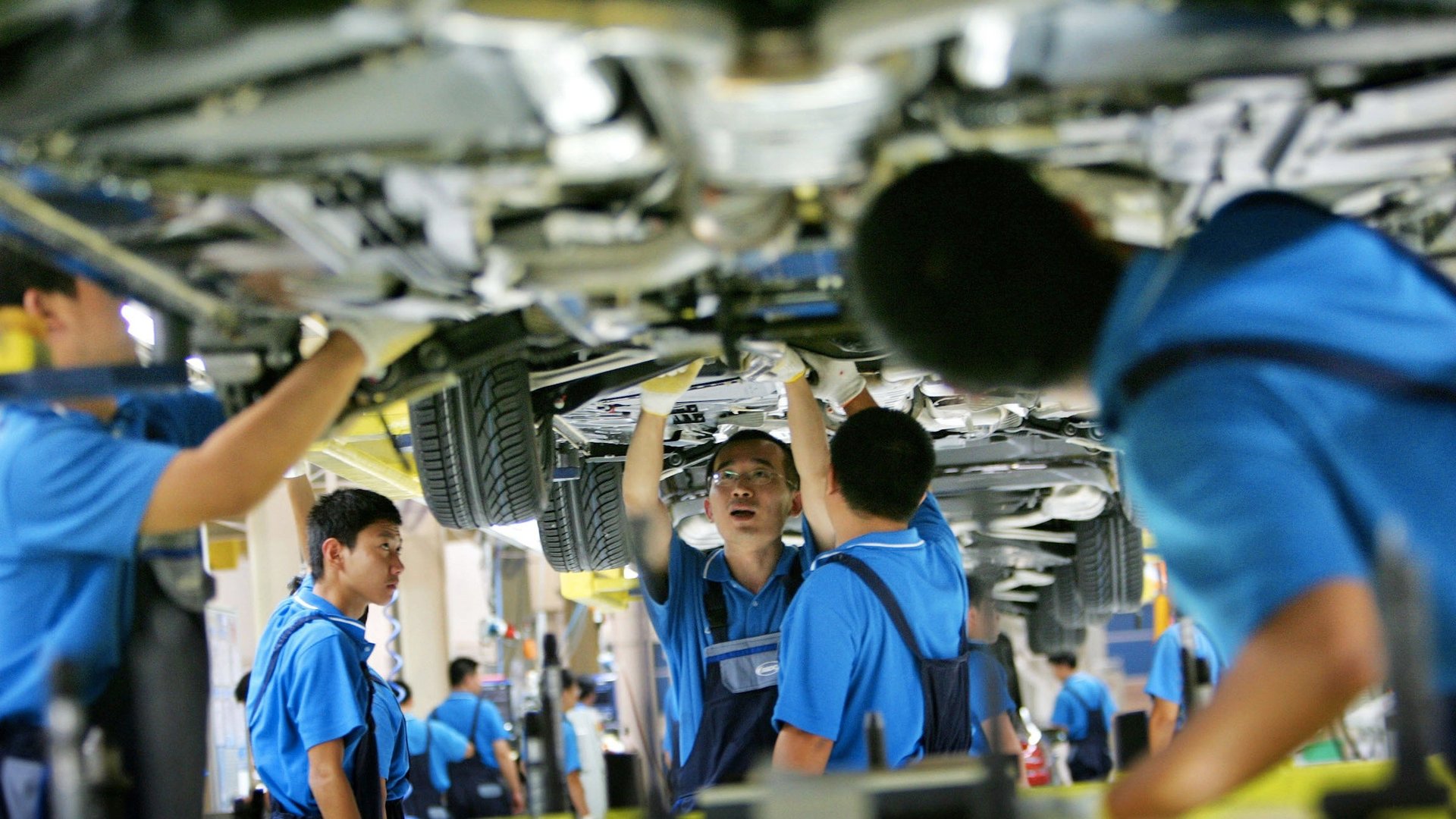With a misleading ad, the global supply chain takes center stage in the US election
One of America’s presidential candidates spent a day being scolded by two US industrial titans, and for a change it wasn’t President Barack Obama. Rather, Mitt Romney, whose biggest selling point is his business background, got lectured on how the private sector works after a late-campaign foray into misleading advertising.


One of America’s presidential candidates spent a day being scolded by two US industrial titans, and for a change it wasn’t President Barack Obama. Rather, Mitt Romney, whose biggest selling point is his business background, got lectured on how the private sector works after a late-campaign foray into misleading advertising.
The matter at hand is what one might portray as Obama’s first and only successful foray into Romney’s industry—private equity. When the financial crisis threatened to push General Motors (GM) and Chrysler into failure, the companies could not find bridge financing to see them through bankruptcy. Credit had dried up, and a fire-sale loomed that would destroy not only the companies, but the extensive network of suppliers that feed them.
The Obama administration chose to continue a bailout process that began during the Bush White House, taking big stakes in the companies much as a private equity firm would, only with government money. It was a risky move: It wasn’t clear if the automakers could become competitive again, and many, including Romney, opposed putting federal money into the turnaround job.
But the cost-cutting of bankruptcy and steady if uninspiring growth has led the two firms into far healthier territory, and they have begun paying back their bailout. And the rescue gained Obama the support of many in America’s industrial heartland. This helps account for his resilient lead in critical states like Ohio, which with their large populations of Republican-leaning white, blue-collar workers, could have been tougher sledding for him.
So to fight back, the Romney campaign is painting Obama as an enemy of the auto industry:
The advertisement, airing in Ohio, claims that President Obama had sold “Chrysler to Italians who are going to build Jeeps in China.” This is, as many have pointed out, is true on its face: When Chrysler went through bankruptcy, a controlling stake was sold to Fiat, the Italian car-maker, and now Chrysler is considering building new factories in China to make Jeeps for the fast-growing market there. But the company says it isn’t eliminating any existing jobs—a caveat that was left out of Romney’s ad. A radio ad that followed accused GM of favoring Chinese workers over Americans, blaming Obama.
A GM spokesperson called the episode “campaign politics at its cynical worst,” while Chrysler CEO Sergio Marchionne e-mailed employees to refute Romney’s claims; indeed, the company plans to hire 1,100 more American workers to manufacture Jeeps by 2013. The company’s main reason for putting a plant in China is to surmount trade rules that would otherwise restrict its access to the world’s largest market for cars. Selling cars there would mean more revenue for the firm to support its global operations, including those in the US. ”The reason that Chrysler is surviving now is because they have access to those markets,” Columbia Business School Professor Amit Khandelwal says. “The real question is not so much where the final product is being produced, it’s where the value added.”
Many of Chrysler’s suppliers are American companies, and if Chinese workers are assembling final products in Shanghai, it probably won’t affect existing US jobs all that much. Consider the iPhone; though it is assembled in China, its parts come from all over, and ultimately only 5% of the final product comes from China; because of this, the US trade deficit is somewhat exaggerated. Meanwhile, American consumers reap the benefits of cheaper goods, even if the dislocation in the manufacturing industry has been a steady challenge for the last decade.
Khandelwal says there is little any president can do to slow the pace of globalization, and even Romney’s pet plan to to impose tariffs on China to punish its currency manipulation would ultimately do little to help Americans or Chinese. A better plan, he suggests, would be for America to focus on improving education in the long-term.
For Romney, a proponent of free trade whose firm, Bain Capital, was a pioneer of outsourcing, to criticize Chrysler’s decision to try to find the cheapest labor under the best business conditions is of course ironic, not to say cynical. That the Romney camp believes—not incorrectly—that such a misleading ad may win votes is a good measure of the campaign’s view of voter knowledge and the efficacy of the media. Though a great many press outlets have reported on the blatant distortions in Romney’s claims, his staff are clearly betting that this coverage won’t reach a lot of the voters they want to persuade.